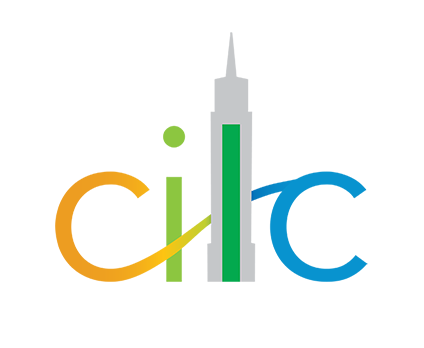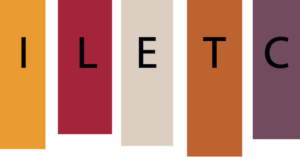Pre-Conference Workshops
May 3, 2018
The Graduate Center, CUNY
One full-day workshop and six half-day workshops are offered. This page provides the schedule and descriptions of each workshop.
Important note: if you register for the full-day workshop, you must attend both the morning and afternoon sessions.
Full Day Workshops (must attend both parts)
10 AM – 1 PM: Assessment of Performance towards Proficiency in Languages (full day)
1:00 PM-2:30 PM: Lunch
2:30 – 6:30 PM: Assessment of Performance towards Proficiency in Languages (full day)
Half Day Workshops
10:00 AM – 1:00 PM:
- Teaching with the Heritage Arabic eBook
- Working with the Data: SILCC Surveys
- Integrating Task Based Language Teaching into Language Courses
1:00 PM – 2:30 PM: Lunch
2:30 PM – 6:30 PM:
- Integrating Telecollaborative Activities into Language Courses
- Developing the Writing Proficiency of Spanish Heritage Learners
- Developing the Writing Proficiency of Chinese Heritage Learners —CANCELED
Workshop Descriptions
Assessment of Performance Towards Proficiency in Languages
Day-long Workshop
(must attend entire day)
Facilitator: TBD
Language(s): All
Levels: All
Time: 10:00AM to 6:30PM
Room: provided upon registration
The ACTFL Assessment of Performance toward Proficiency in Languages (AAPPL) is a performance-based assessment of standards-based language learning across the three modes of communication (Interpersonal, Interpretive, and Presentational) as defined by the World-Readiness Standards for Learning Languages. In an online format, the AAPPL Measure assesses Interpersonal Listening/Speaking (ILS), Interpretive Reading (IR), Interpretive Listening (IL), and Presentational Writing (PW). The AAPPL provides a measure of performance, that is the language that learners have acquired and practiced within a classroom setting, which provides evidence of a learner’s proficiency level.
In this workshop the presenter will introduce the assessment tool and will demonstrate how the assessment can be used to measure growth in the three modes of communication (Interpretative, Interpersonal, and Presentational). The presenter will also review general concepts related to proficiency including the link between proficiency and performance, and how to identify what makes a learner novice, intermediate, or advanced. Additionally, the participants will be able to discuss ideas for moving students along the proficiency continuum and will develop a student-friendly rubric that they will practice to rate linguistic samples
Teaching with the Heritage Arabic eBook
Half-day Workshop – Morning
Facilitator: Alexander Elinson
Language(s): Heritage Arabic
Levels: All
Time: 10:00AM to 1:00PM
Room: provided upon registration
During this workshop presenters will unveil the open-source Arabic pedagogical materials that the Heritage Arabic eBook (HAeB) team at the Center for Integrated Language Communities (CILC) has produced for university-level heritage learners. The eBook was created with the goal of improving heritage Arabic learning and teaching in the US and elsewhere through free, open-source materials for heritage Arabic instructors. The foundations of this book are found in the ACTFL performance guidelines, critical dialect awareness, new literacy studies, and project-based language learning.
During this workshop, the presenters will discuss the theoretical underpinnings of this project and some of the challenges the project’s team faced in producing materials for Arabic heritage learners. Participants in this workshop will:
- get a detailed tutorial of activities developed by the HAeB team to use in the Arabic heritage or L2/heritage classroom; and
- explore the implications of Arabic sociolinguistics for the Arabic heritage language classroom.
Suggested Readings
Working with the Data: the Students and Instructors of Languages at Community Colleges Surveys
Half-day Workshop – Morning
Facilitator: Eric Ketcham, Tomonori Nagano
Language(s): All
Levels: All
Time: 10:00AM to 1:00PM
Room: provided upon registration
In this workshop, participants will work with the data from the Students and Instructors of Languages at Community Colleges (SILCC) Surveys. The SILCC Surveys were administered in Fall 2015 to students and instructors of languages other than English at community colleges (CCs) in order to better understand the demographics and motivations of language students at CCs, as well as the experiences and pedagogical methodologies of language instructors at CCs. The surveys include responses from 1,756 students and 140 instructors from 101 CCs in 33 states.
This workshop will take place in a computer lab, where participants will use SPSS to query the SILCC Survey data. Prior knowledge of SPSS is not required. In this session participants will
- Examine the SILCC Surveys;
- Learn how to produce descriptive statistics in SPSS; and
- Query the SILCC Surveys data to answer their individual questions about students and instructors of languages in the CC context, with assistance from the facilitators.
Participants are encouraged to check the survey data in advance of the session to prepare individual questions to bring to the workshop. Survey data will become available on during Fall 2017 on LCCN – SILCC Surveys: Data.
Suggested Readings
Integrating Task Based Language Teaching into Language Courses
Half-day Workshop – Morning
Facilitator: Tom Means, Luisanna Sardu
Language(s): All
Levels: All
Time: 10:00AM to 1:00PM
Room: provided upon registration
Task-based Language Teaching (TBLT) promotes language acquisition through the performance of meaningful communicative tasks. TBLT is a pedagogy in which students act primarily as language users, rather than primarily language learners as is the case in traditional instruction. TBLT activities are structured in three stages that together comprise a task cycle: pre-task, task performance, and post-task. A task cycle can be easily integrated into an existing curriculum. In this workshop the presenter will outline the principles for TBLT, discuss research that supports this model, and provide examples of task implementation.
In this workshop participants will:
- Gain an understanding of TBLT and the principles of instructed language acquisition that support this approach;
- Participate in a demonstration of a complete task cycle;
- Outline their own task; and
- Examine and discuss TBLT materials for the teaching of Italian created by a team of specialists at the Institute for Language Education in Transcultural Context (ILETC), The Graduate Center, CUNY.
Suggested Readings
Integrating Telecollaborative Activities into Language Courses
Half-day Workshop – Afternoon
Facilitator: Valeria Belmonti
With project presentations by Olga Aksakalova, Aranzazu Borrachero, and Kyoko M. Toyama
Language(s): All
Levels: All
Time: 2:30PM to 6:30PM
Room: provided upon registration
Telecollaborative pedagogies enable students to engage in intercultural learning with partner courses at foreign and domestic universities. These pedagogies are particularly well suited for L2 and heritage language courses, since they expose learners to content and ideas generated by speakers from diverse linguistic communities, create opportunities for multimodal use of target language for a concrete audience, and promote discussion of language and identity across linguistic communities.
In this workshop, participants will
- Learn the foundations of telecollaborative pedagogies, including how to create partnerships and how to choose appropriate technologies;
- Interact with four instructors who have run telecollaborative projects in their classes and who will present on their specific experiences; and
- Be guided in the creation of an outline for their own telecollaborative project.
Suggested Readings
Developing the Writing Proficiency of Spanish Heritage Learners
Half-day Workshop – Afternoon
Facilitator: Alberta Gatti
Language(s): Heritage Spanish
Levels: All
Time: 2:30PM to 6:30PM
Room: provided upon registration
During this workshop, presenters will discuss the linguistic profiles of intermediate and advanced Spanish heritage writers, as well as the instructional implications that derive from these profiles. Given that heritage language learners (HLLs) typically complete most of their formal education in English, it makes sense that writing (together with reading) is the area in which these learners display lower levels of proficiency in Spanish. Therefore, when HLLs arrive in college language classes, one important goal for them is to develop literacy skills and most academic courses reflect this aim with a curriculum heavily focused on writing. One way to support this classroom goal is to understand patterns in HLLs’ writing abilities and to implement instructional strategies that develop the weaker linguistic areas for these writers while taking advantage of their strengths.
In this workshop participants will
- Become familiar with or refresh their knowledge of the ACTFL proficiency guidelines for writing;
- Examine the linguistic profiles of Spanish HLLs illustrated through writing samples at intermediate and advanced levels, with a discussion on the strengths and weaknesses of these two levels; and
- Brainstorm concrete strategies and activities that will support progress toward achieving higher proficiency in writing.
Suggested Readings







